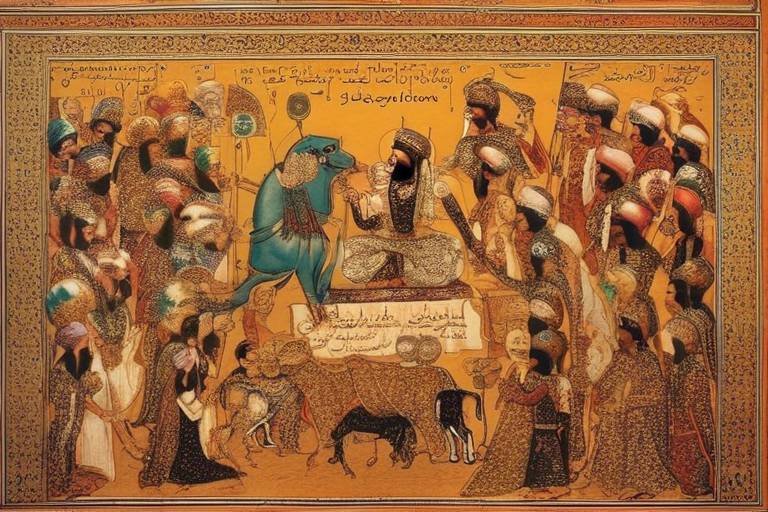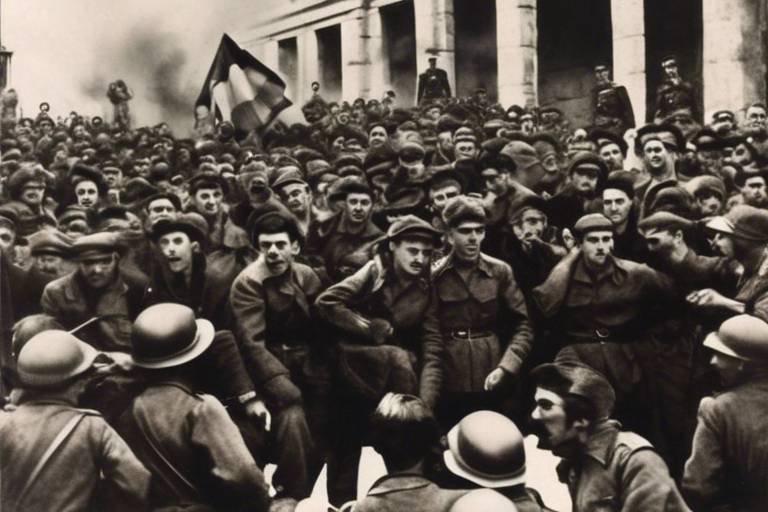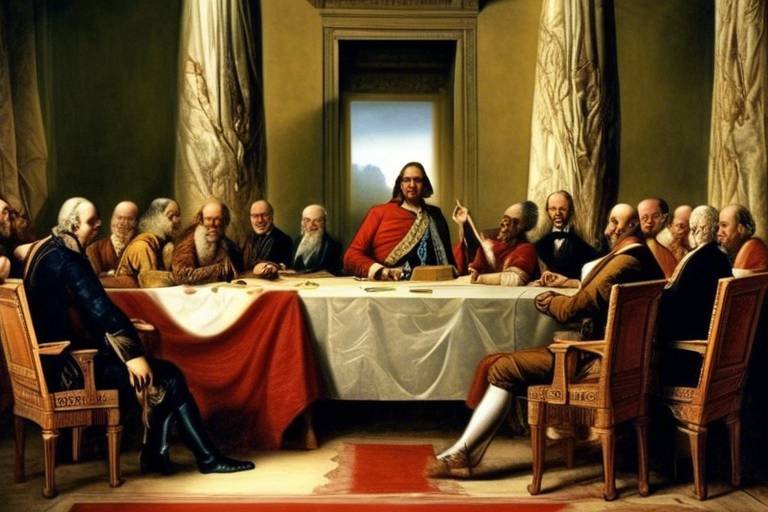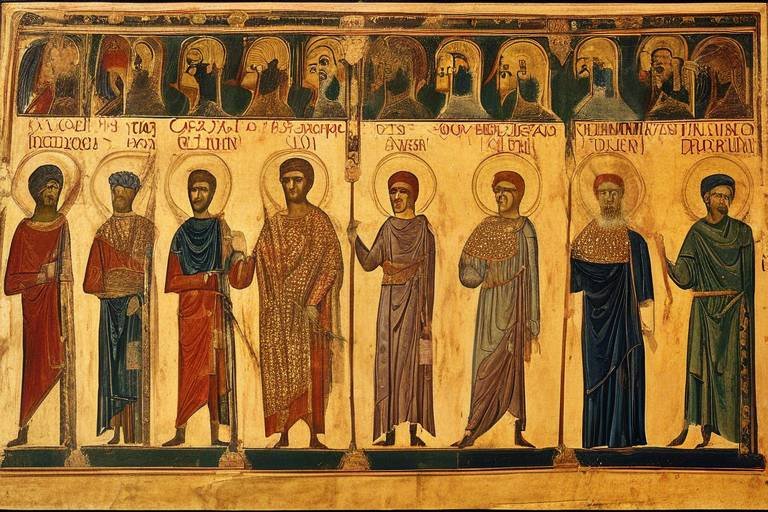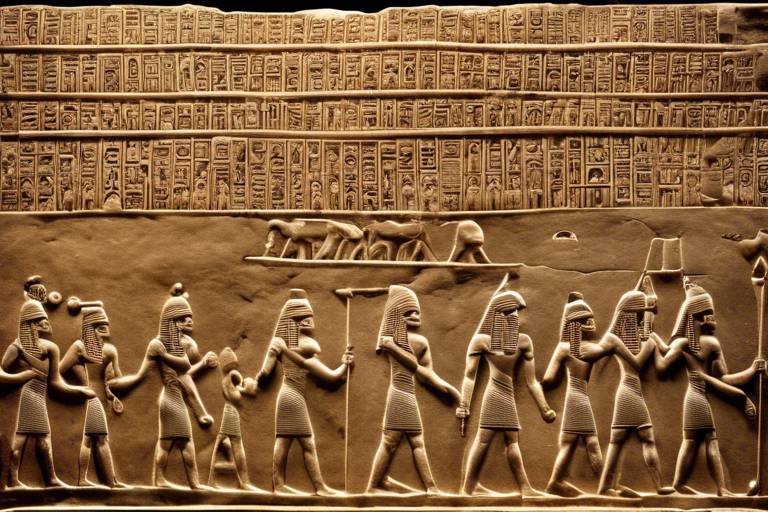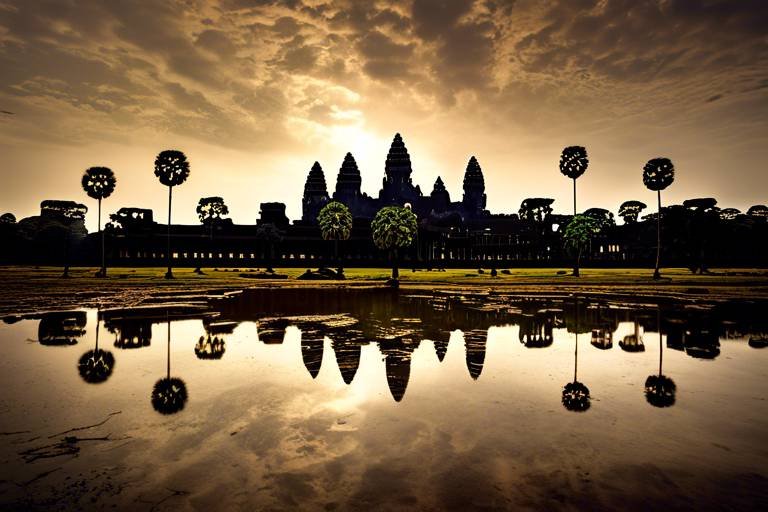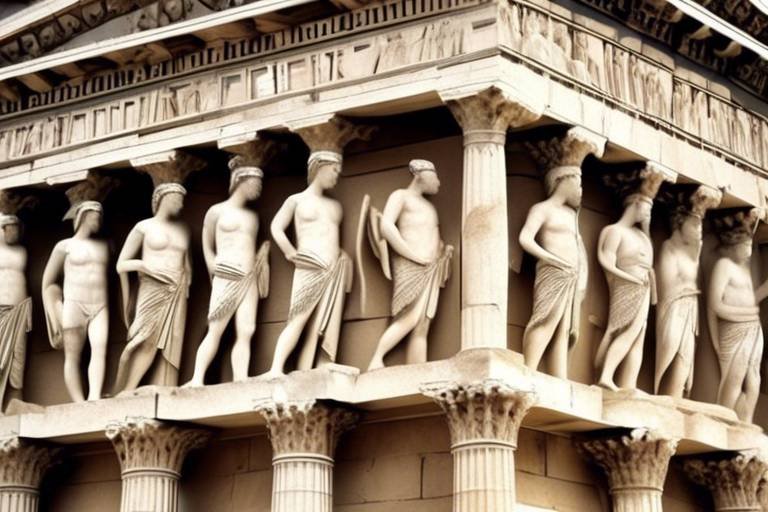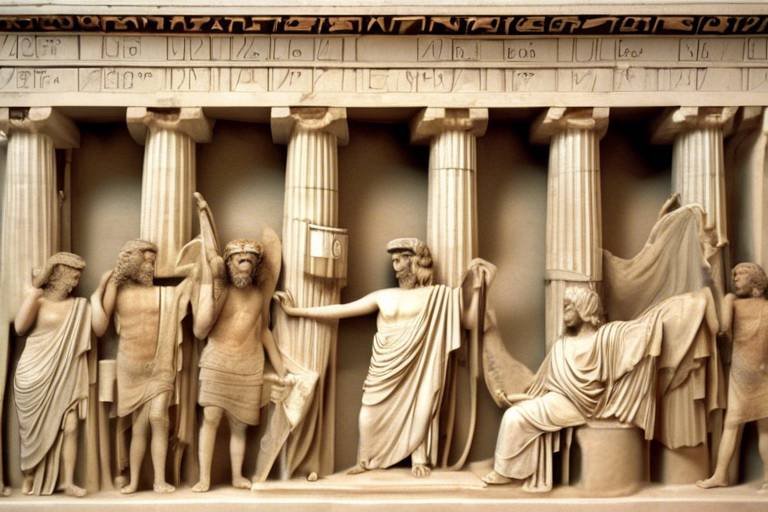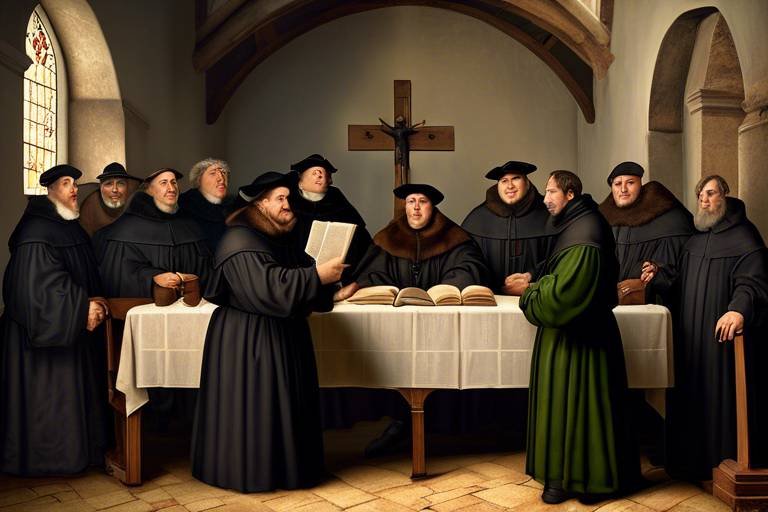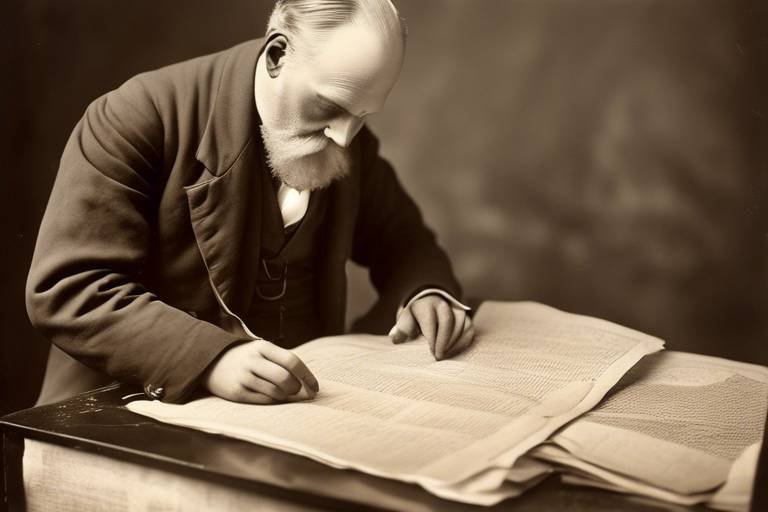The Role of Religion in the Development of Civilizations
Religion has been a driving force in the development of civilizations, shaping the very fabric of societies and influencing various aspects of human life. From the earliest civilizations to modern societies, religion has played a significant role in shaping cultural identities, governance structures, artistic expressions, and social interactions.
Throughout history, religious beliefs have served as a cornerstone of cultural identity, providing a sense of belonging and shared values within communities. These beliefs have influenced traditions, rituals, and ethical norms, contributing to the unique cultural diversity observed across civilizations.
Moreover, the impact of religion on governance and law cannot be understated. Many civilizations have derived their legal systems and governance structures from religious principles, integrating moral codes and ethical guidelines into the fabric of society. This fusion of religious and legal frameworks has influenced the administration of justice and the organization of societal structures.
Religious institutions have historically held significant power within civilizations, influencing political decisions, social hierarchies, and resource distribution. The intricate relationship between religion and power dynamics has shaped the social, economic, and political landscapes of civilizations, often dictating the course of history.
Art and architecture have also been profoundly influenced by religious beliefs, inspiring some of the most iconic and awe-inspiring creations in human history. From grand cathedrals to intricate sculptures, religious expression has left an indelible mark on the artistic heritage of civilizations, reflecting the spiritual aspirations and cultural values of societies.
The interaction between different religious groups has led to both cooperation and conflict within civilizations. While religious differences have sometimes fueled tensions and disputes, they have also provided opportunities for dialogue, cultural exchange, and mutual understanding, fostering a sense of unity amidst diversity.
Religious institutions have traditionally served as centers of learning and knowledge transmission, playing a crucial role in education and intellectual development. The promotion of literacy, scholarship, and cultural exchange within religious settings has contributed to the advancement of civilizations, nurturing a legacy of intellectual growth and innovation.
Furthermore, many religions emphasize the importance of social welfare and charity, leading to the establishment of charitable organizations and initiatives aimed at alleviating suffering and promoting compassion within societies. The values of altruism and community support advocated by religions have had a profound impact on social welfare, contributing to the well-being of individuals and communities.
As religions have evolved over time, they have adapted to changing societal contexts and technological advancements, remaining relevant and resilient in the face of cultural transformations. The ability of religions to adapt and evolve has been instrumental in the continued development and progression of civilizations, ensuring their enduring influence on human societies.

Religious Beliefs and Cultural Identity
Religion has played a significant role in shaping civilizations throughout history, influencing art, architecture, governance, and societal norms. This article explores how different religions have impacted the growth and evolution of various civilizations.
Religious beliefs often serve as a cornerstone of cultural identity, influencing traditions, rituals, and values within civilizations. The preservation of these beliefs has been crucial in maintaining the unique cultural fabric of societies.
Many civilizations have derived their governance structures and legal systems from religious principles. The integration of religious laws and moral codes has shaped the way societies are governed and how justice is administered.
Religious institutions have historically wielded significant power within civilizations, influencing political decisions, social hierarchies, and the distribution of resources. The relationship between religion and power dynamics has been a driving force in shaping societies.
Religious beliefs have inspired some of the most magnificent works of art and architecture in history. The expression of faith through creative endeavors has left a lasting impact on the cultural landscape of civilizations.
The interaction between different religious groups has led to both conflict and cooperation within civilizations. Religious differences have been a source of tension, but also opportunities for dialogue, exchange, and mutual understanding.
Religious institutions have historically been centers of learning and knowledge transmission. The role of religion in education has been pivotal in the development of civilizations, fostering intellectual growth and cultural exchange.
Many religions emphasize the importance of charity and social welfare, leading to the establishment of benevolent organizations and initiatives within civilizations. The promotion of compassion and altruism has contributed to the well-being of societies.
Religious beliefs and practices have evolved over time, adapting to changing societal contexts and technological advancements. The ability of religions to remain relevant and resilient has been crucial in the continued development of civilizations.
Q: How have religious beliefs influenced the art and architecture of civilizations?
A: Religious beliefs have served as a major source of inspiration for artistic expression, leading to the creation of magnificent religious artworks and architectural marvels.
Q: What role have religious institutions played in governance throughout history?
A: Religious institutions have often wielded significant power, influencing political decisions and shaping the legal systems of civilizations.
Q: How do religious differences impact societal dynamics?
A: Religious differences can lead to both conflict and cooperation, influencing social relationships and cultural exchanges within civilizations.

Impact on Governance and Law
Religion has long been intertwined with governance and law, shaping the structures and systems that govern societies. In many civilizations, religious principles have served as the foundation for legal frameworks, influencing the development of laws and regulations that guide behavior and maintain order. The moral codes prescribed by religions often form the basis of societal norms and ethical standards, providing a framework for governance that reflects the values and beliefs of the community.
Moreover, the influence of religion on governance extends beyond the legal realm, impacting political decision-making and the distribution of power within societies. Religious institutions have historically held significant sway over political affairs, with religious leaders often playing key roles in shaping policies and influencing leadership. The relationship between religion and governance has been complex, with religious authorities sometimes acting as both spiritual and political figures, exerting influence over social hierarchies and power structures.
Furthermore, the integration of religious values into governance has not only shaped laws and policies but also influenced the administration of justice. Concepts of morality and divine justice, as outlined in religious texts, have guided legal proceedings and the enforcement of laws in many civilizations. The belief in divine retribution or karma, for example, has influenced the concept of punishment and the idea of accountability for actions within legal systems.

Religious Institutions and Power Structures
Religious institutions have long been central to the power structures of civilizations, exerting influence over political decisions, social hierarchies, and resource allocation. These institutions often hold significant sway over the beliefs and behaviors of individuals within a society, shaping moral values and guiding ethical standards. Just like a towering cathedral dominating the skyline, religious organizations have stood as pillars of authority, dictating norms and influencing the direction of entire civilizations.
Throughout history, the intertwining of religion and power has led to complex dynamics, sometimes resulting in the consolidation of authority and the establishment of hierarchies based on religious affiliations. The clergy, as intermediaries between the divine and the earthly realm, have wielded considerable power, shaping the social order and maintaining control over the spiritual well-being of the populace. This power structure, akin to a grand chessboard, has seen strategic moves and counterplays that have shaped the course of history.
Moreover, the relationship between religious institutions and political entities has often been symbiotic, with each side leveraging the influence of the other to maintain control and legitimacy. The alignment of religious and political power has at times led to the fusion of religious doctrine with state laws, creating a system where divine mandates and earthly governance intertwine. This fusion, akin to a tapestry woven with threads of faith and authority, has defined the fabric of many civilizations, dictating social norms and legal frameworks.
However, the concentration of power within religious institutions has also sparked conflicts and challenges to authority, as competing factions vie for control and influence. The struggle for dominance, reminiscent of a high-stakes game of thrones, has often resulted in schisms, reforms, and revolutions within religious hierarchies, reshaping the power dynamics within societies. The interplay between religious institutions and power structures continues to be a dynamic force, shaping the trajectory of civilizations and influencing the course of history.

Art, Architecture, and Religious Expression
Art and architecture have long been intertwined with religious expression, serving as a visual representation of faith and spirituality. From the grand cathedrals of Christianity to the intricate temples of Hinduism, religious beliefs have inspired some of the most breathtaking artistic creations in history. These architectural marvels not only showcase the technical prowess of civilizations but also reflect the deep reverence and devotion towards the divine.
Through intricate sculptures, vibrant paintings, and awe-inspiring monuments, artists have sought to capture the essence of their religious beliefs and convey them to the masses. These artistic expressions not only serve as a form of worship but also as a means of educating and inspiring the faithful. The beauty and symbolism embedded in religious art and architecture transcend language barriers, speaking directly to the soul and evoking a sense of awe and wonder.
Moreover, the construction of religious buildings has not only been a testament to architectural ingenuity but also a reflection of the power dynamics within civilizations. The towering structures dedicated to gods and goddesses often symbolize the wealth and influence of religious institutions, shaping the urban landscape and serving as a focal point for communal gatherings and ceremonies.
Art and architecture have been instrumental in fostering a sense of community and shared identity among believers, creating sacred spaces that facilitate spiritual connection and communal worship. These artistic expressions not only enrich the cultural heritage of civilizations but also serve as a tangible link to the divine, transcending time and space to connect humanity with the sacred.

Conflict and Cooperation Among Faiths
When exploring the intricate tapestry of civilizations, one cannot ignore the dynamic interplay between different faiths. Throughout history, the clash of religious beliefs has sparked conflicts that have reverberated across societies, shaping the course of nations. From the Crusades to religious wars, the discord arising from divergent ideologies has often led to bloodshed and division.
However, amidst the turmoil, there have also been instances of remarkable cooperation among faiths. The exchange of ideas, art, and knowledge between different religious communities has fostered a rich tapestry of cultural exchange and mutual understanding. It is in these moments of unity that the true potential for harmony and coexistence between faiths is revealed.
Religious differences, while a source of tension, have also served as a catalyst for dialogue and collaboration. The shared values of compassion, love, and empathy present in many faith traditions have provided common ground for bridging divides and building bridges of understanding.
Ultimately, the history of civilizations is marked by both conflict and cooperation among faiths, each playing a pivotal role in shaping the complex mosaic of human experience. It is through acknowledging and embracing these dualities that societies can strive towards a future where diversity is celebrated and unity is cherished.

Education and Knowledge Transmission
Education has always been closely intertwined with religious institutions, serving as centers of learning and knowledge transmission. Throughout history, religions have played a pivotal role in educating individuals and fostering intellectual growth within civilizations. The teachings and scriptures of various faiths have been passed down through generations, contributing to the cultural richness and diversity of societies.
Religious education has not only focused on spiritual beliefs but also encompassed a wide range of subjects, including philosophy, science, literature, and ethics. The pursuit of knowledge within religious settings has led to significant advancements in various fields, shaping the intellectual landscape of civilizations.
Moreover, religious schools and academies have served as hubs for academic exchange and cultural dialogue, facilitating the sharing of ideas and perspectives across different communities. The interaction between scholars from diverse religious backgrounds has contributed to the cross-pollination of knowledge and the enrichment of intellectual discourse.
Furthermore, the emphasis on education within religious traditions has instilled values of curiosity, critical thinking, and lifelong learning in individuals. The promotion of education as a means of personal and societal development has been integral to the progress and prosperity of civilizations.

Impact on Social Welfare and Charity
Religion has long been a driving force behind social welfare and charitable initiatives within civilizations. Many religions place a strong emphasis on the importance of helping those in need and promoting social justice. This has led to the establishment of various charitable organizations and initiatives aimed at addressing poverty, hunger, healthcare, and other social issues.
Religious teachings often encourage followers to practice compassion, generosity, and altruism towards others, regardless of their background or beliefs. These values have inspired individuals and communities to engage in acts of kindness and charity, contributing to the overall well-being of society.
Furthermore, religious institutions have historically played a significant role in providing support to the less fortunate through initiatives such as food banks, shelters, healthcare services, and educational programs. These efforts not only address immediate needs but also aim to empower individuals and communities to lead more fulfilling lives.
Additionally, the concept of charity in many religions extends beyond material assistance to encompass emotional support, spiritual guidance, and community solidarity. By fostering a sense of interconnectedness and shared responsibility, religious teachings promote a culture of caring and empathy that transcends individual differences.

Adaptation and Evolution of Religious Practices
Religious beliefs and practices have continuously evolved and adapted to the changing landscapes of civilizations. The ability of religions to remain relevant and resilient over time has been crucial in their continued influence on societies. As civilizations progress and encounter new challenges, religious practices have undergone transformations to address the needs and beliefs of the people.
Throughout history, various religions have demonstrated a remarkable capacity for adaptation, incorporating new ideas and practices while retaining core beliefs. This flexibility has allowed religions to stay connected to their followers and navigate the complexities of modern society. Just like a tree that bends with the wind but remains rooted in the ground, religions have shown resilience in the face of cultural shifts and technological advancements.
One example of religious adaptation can be seen in the integration of technology into religious practices. In today's digital age, many religious institutions utilize online platforms for worship services, virtual gatherings, and educational programs. This blending of tradition with innovation ensures that religious teachings remain accessible and engaging for believers in a rapidly changing world.
Moreover, the evolution of religious practices has also involved a reinterpretation of ancient scriptures and teachings to align with contemporary values and ethical standards. By reexamining religious texts through a modern lens, religious leaders and scholars seek to promote inclusivity, tolerance, and social justice within their communities. This reinterpretation process reflects the dynamic nature of religious beliefs and the ongoing quest for relevance in a diverse and interconnected global society.
Frequently Asked Questions
- How has religion influenced the development of civilizations?
Religion has played a significant role in shaping civilizations by influencing art, architecture, governance, societal norms, and cultural identity. It has provided a foundation for traditions, rituals, values, and legal systems within societies.
- What impact have religious institutions had on power structures?
Religious institutions have historically held significant power within civilizations, influencing political decisions, social hierarchies, and resource distribution. Their role in shaping power dynamics has been crucial in the development of societies.
- How have religious beliefs inspired art and architecture?
Religious beliefs have inspired some of the most magnificent works of art and architecture in history. The expression of faith through creative endeavors has left a lasting impact on the cultural landscape of civilizations, showcasing the depth of religious influence.
- What role has religion played in education and knowledge transmission?
Religious institutions have historically been centers of learning and knowledge transmission, fostering intellectual growth and cultural exchange. The pivotal role of religion in education has contributed significantly to the development of civilizations.
- How have religious practices adapted over time?
Religious beliefs and practices have evolved over time, adapting to changing societal contexts and technological advancements. The ability of religions to remain relevant and resilient has been essential in the continued development and evolution of civilizations.





